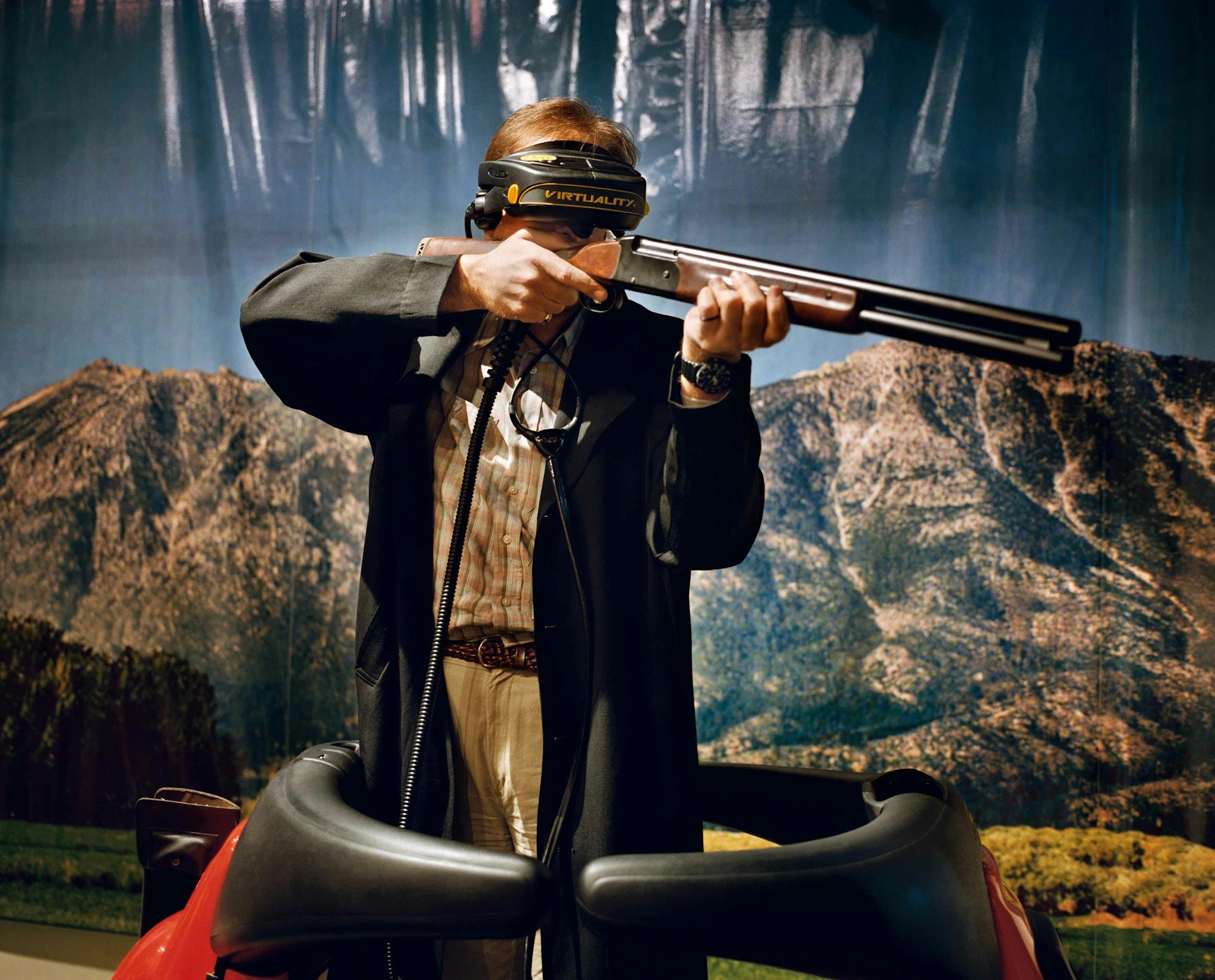
Mitch Epstein on capturing the real America for 50 years
- Text by Miss Rosen
- Photography by Mitch Epstein
The year was 1969, and America was ablaze, fired up by protests against the Vietnam War, the civil rights movement, women’s liberation, and Stonewall. Photographer Mitch Epstein, then just 16 years old, began to use his camera to confront the complex cultural psychology of the country he called home.
Over the next 50 years, he would amass an archive of work that stands alone as single images, works beautifully as photo essays, and reveals the country’s complexities, contradictions and conflicts.
In his masterful new book, Sunshine Hotel (Steidl), Epstein weaves a mesmerising tapestry of American life that speaks powerfully of who and where we are now. The 175 photographs in the book, sequenced by editor Andrew Roth, raise questions while simultaneously revealing the nuances of the national character.

Veterans Respond Flag, Sacred Stone Camp, Standing Rock Sioux Reservation, North
Dakota 2017
“The book demands and deserves to be read,” Epstein says. “You have to give yourself to it and then you get something back and that’s what art should be. I don’t know that it’s ever meant to be fully understood in terms of its meaning. It’s not about that. It’s more visceral in some way.”
Sunshine Hotel looks at American history without the nostalgia that makes us long for a simpler time, while illustrating William Faulker’s dictum: “The past is never dead. It’s not even past.” Yet the book is not didactic: it is everything America purports to be: open, embracing, accepting, and validating of multiple perspectives simultaneously.
A powerful sense of realism that pervades the work underscoring a sense of knowing that Epstein’s eye has always held. “There’s a kind of madness that’s this undercurrent that’s always been there in the American landscape,” Epstein says.
“We’re at a point of deep division and things spinning out of control but a lot of has been kept under wraps. It’s always been there but it’s just more accelerated now because there’s more pressure on all the resources, which are being depleted.”
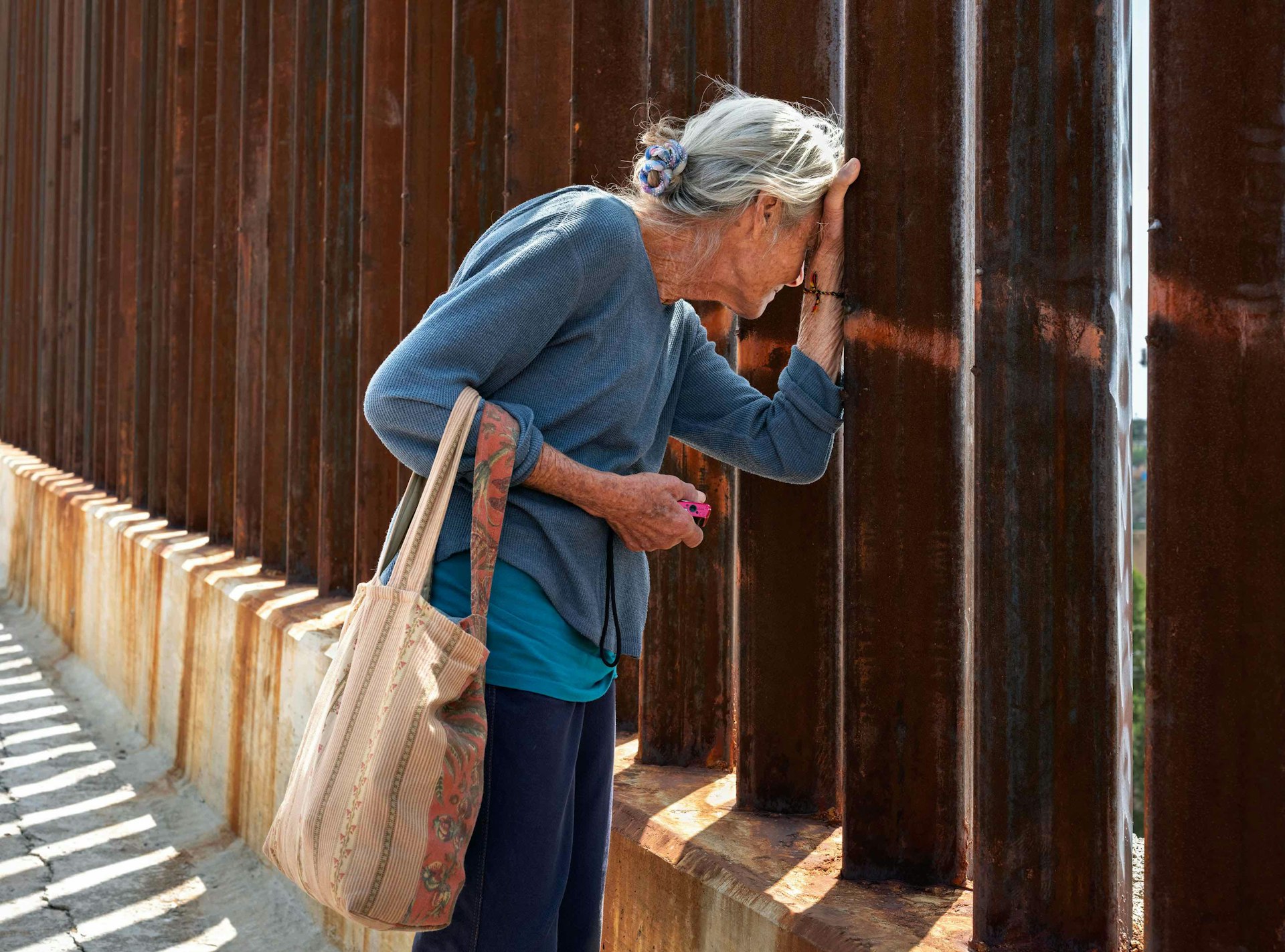
Border Wall, Nogales, Arizona 2017
Yet Epstein is not a pessimist. For all its painful truths, Sunshine Hotel is a letter of hope, a belief that goodwill perseveres. “The saving grace of my work is it’s not explaining itself; it’s enabling beauty. I think within beauty there is a kind of hope, a glimmer of optimism.”
“These are times in which we all have to be bold as artists, as citizens, as human beings. My pictures are a tool I can use to create perspective on the complexity of these things without surrendering them to the ideas I have got floating in my head.”
Ultimately, Sunshine Hotel is a noble lesson on the importance of putting the subject first while respecting the journey and the work – and always staying present, flexible, and open to how to transmit the experience of witnessing through the photograph.
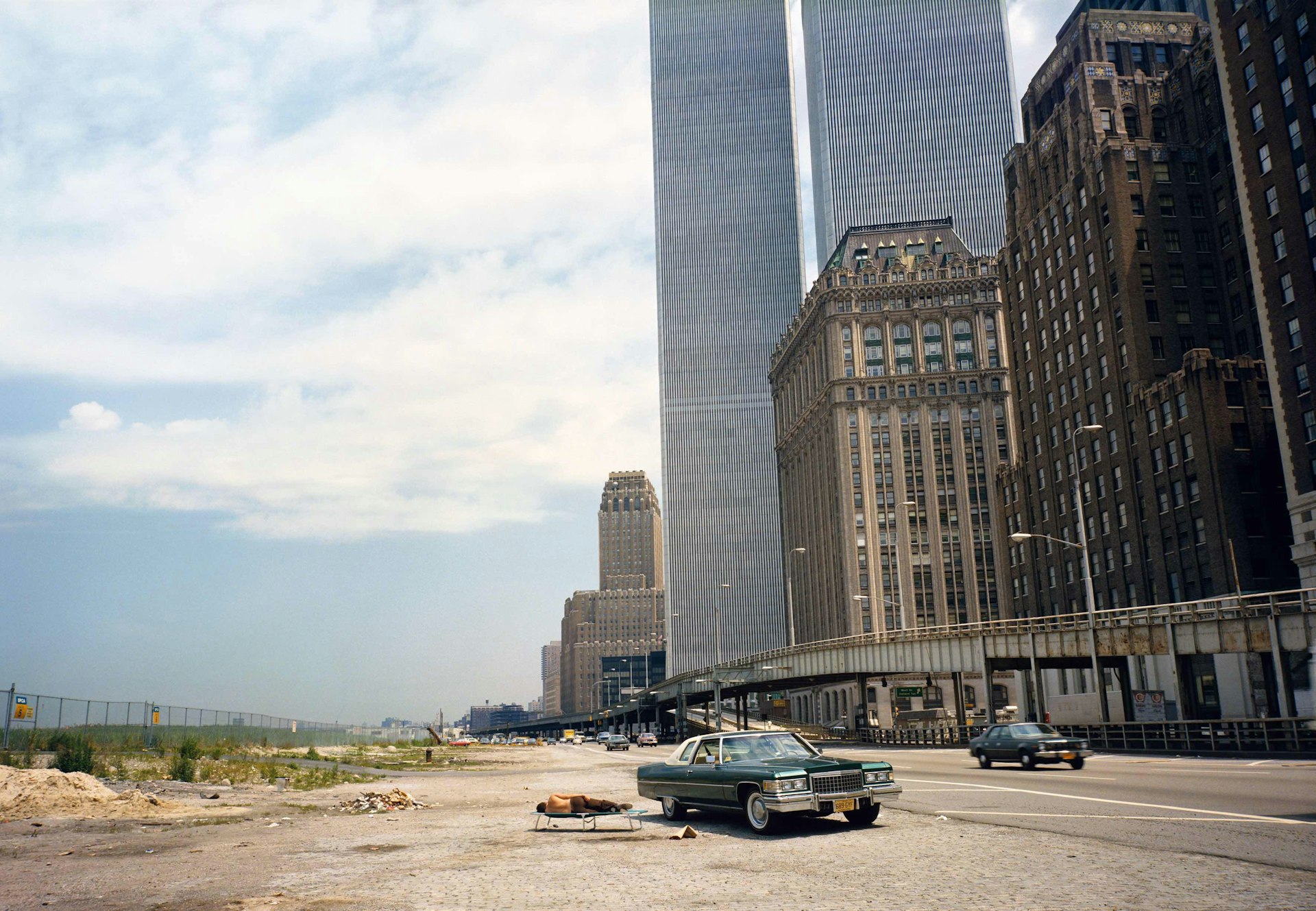
West Side Highway, New York 1977
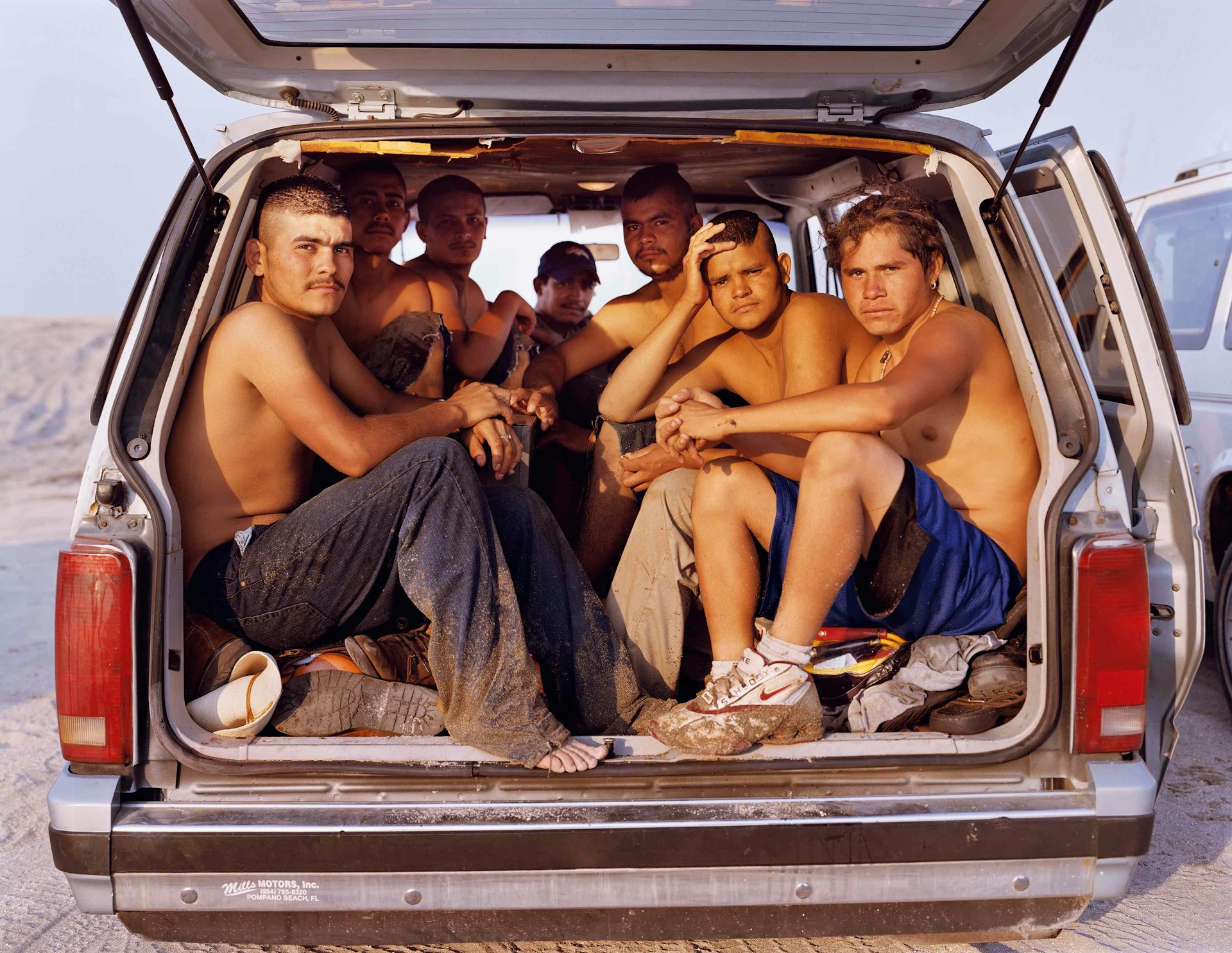
South Beach Dredging Site, Fort Pierce, Florida 2005
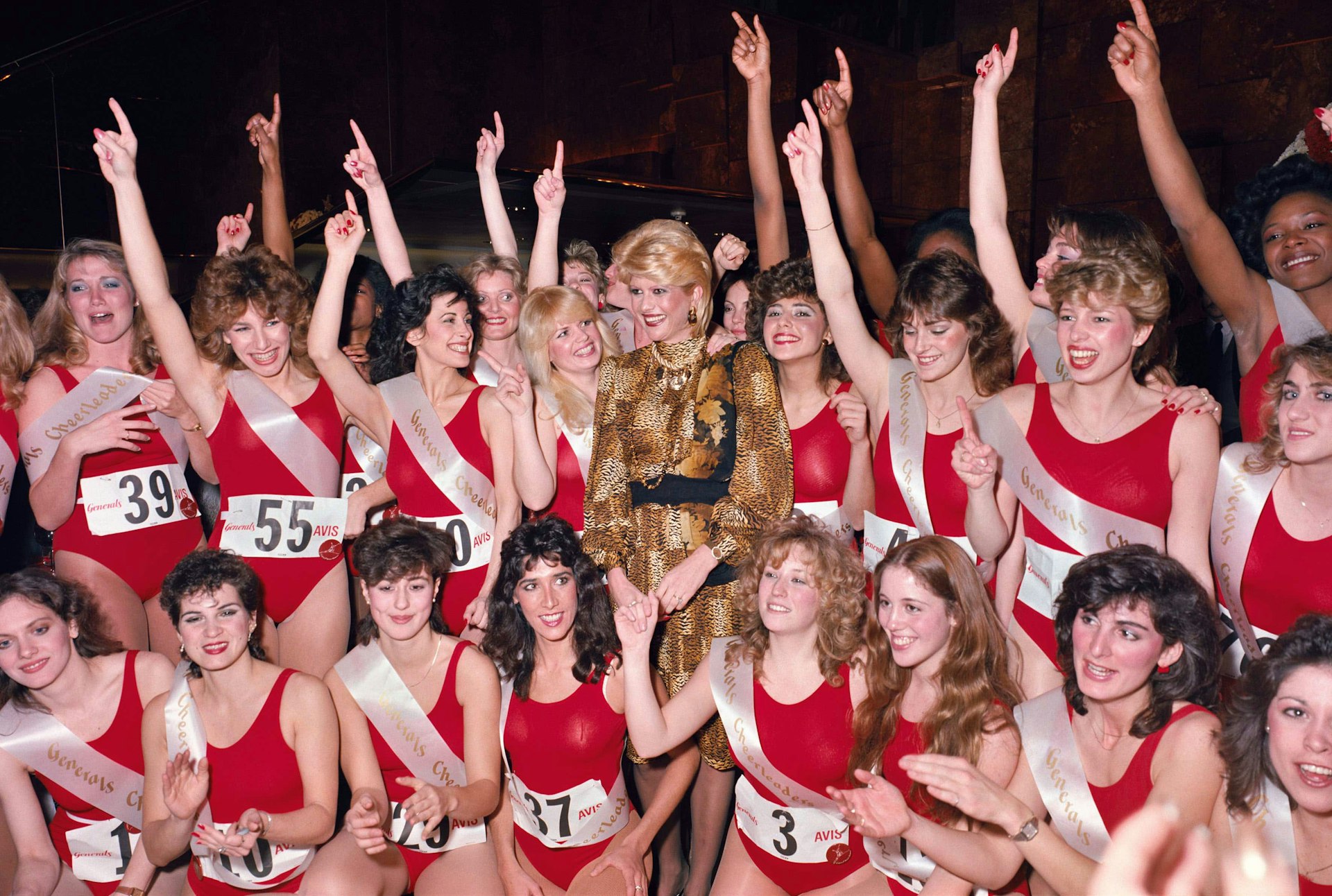
Ivana Trump and New Jersey Generals Cheerleaders, Trump Tower, New York City 1984

Ashton Clatterbuck in Lancaster Against Pipelines Lockdown Device, Pennsylvania 2018
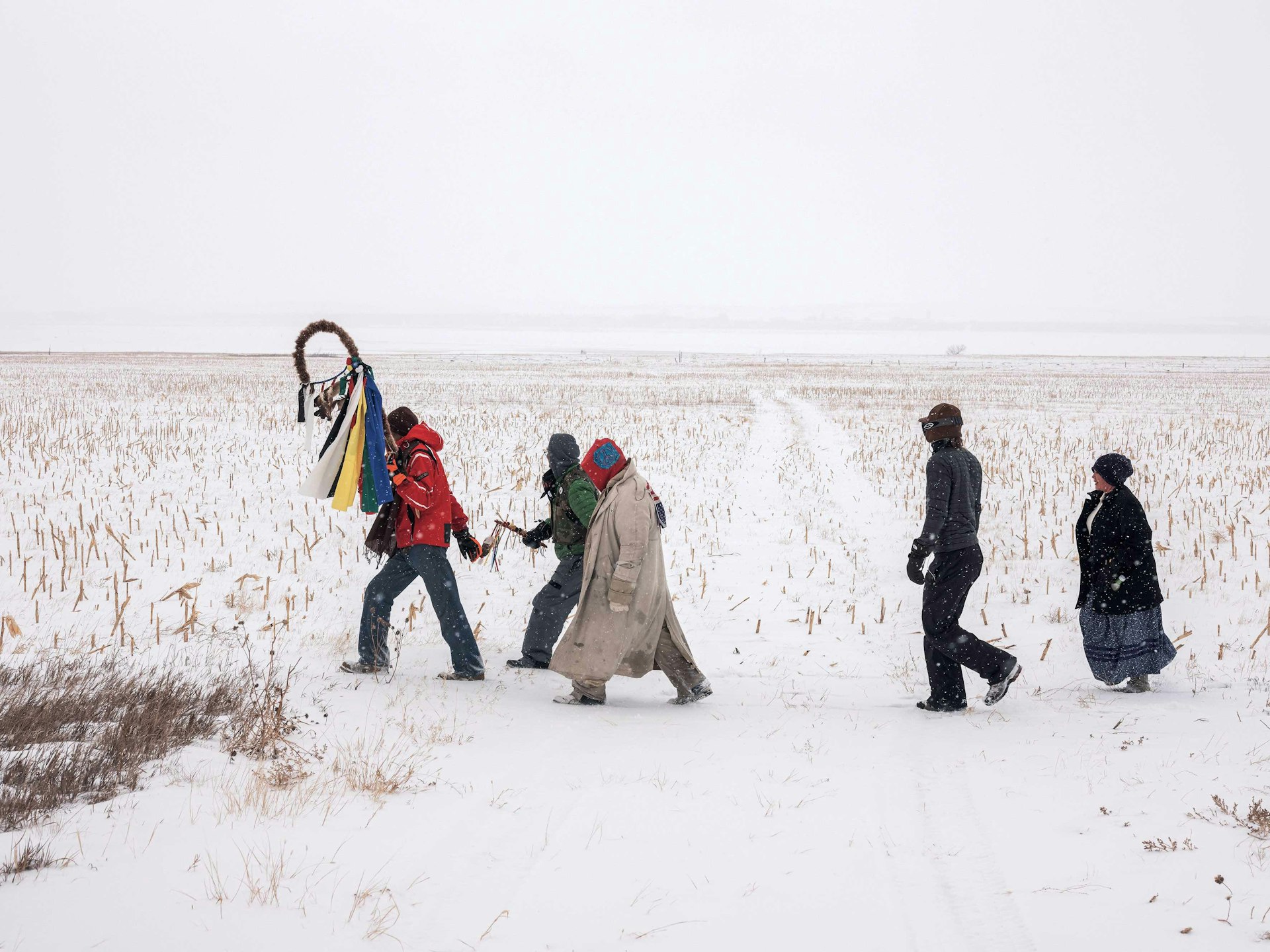
Standing Rock Prayer Walk, North Dakota 2018
Follow Miss Rosen on Twitter.
Enjoyed this article? Like Huck on Facebook or follow us on Twitter.
